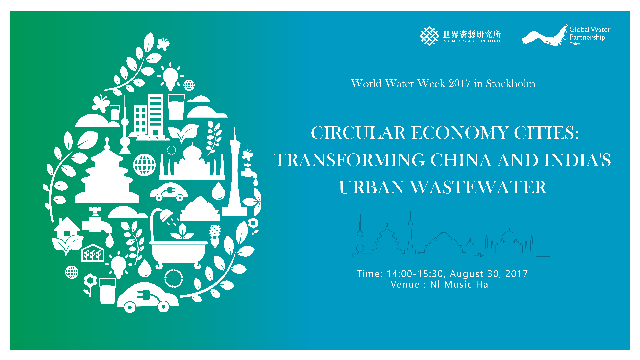GWP China and its professional research partner--World Resources Institute (WRI), are planning to organize a side-event focusing on management concepts and approaches of circular economy to transform urban wastewater and related waste into renewable resources for achievement of Integrated Urban Water Management (IUWM) and SDGs.
It is not difficult to find that China and India have the potential to build circular economy cities. China, according to the Report on the Government Work of 2016 released in March of this year, will cut water consumption, energy consumption and carbon dioxide emissions per unit of GDP by 23%, 15%, and 18% by 2020. In 2017, the Chinese’s Government presses ahead with the nationalwide upgrading of urban sewage treatment facilities and improves the networks of renewable resources. With political support, transforming traditional urban wastewater and sewage management system may gain traction in the coming decade.
Based upon the experiences in implementing waste-to-energy programs in the cities of China and India, the side-event will share with you some cases of applying theory to policy and practice at a broad scale. Speakers representing technology or politics tell their standpoints and the implications for achievement of IUWM and SDGs.
(Photo: Laxiwa Hydropower Station on Yellow River, by Baohua DONG)
